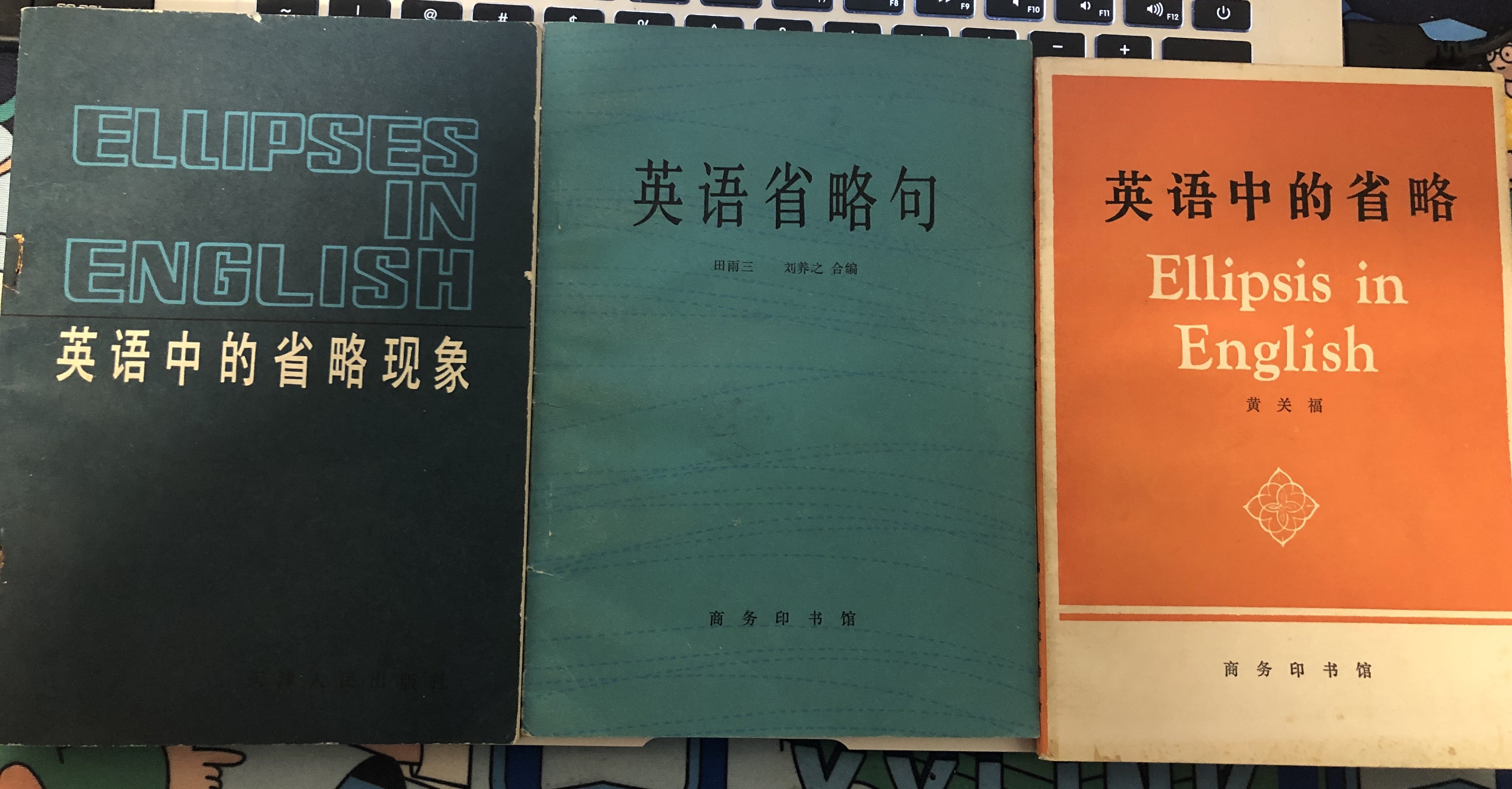2 承前省略 与 另一种省略
老师好!
我看到一个句子,觉得特别有意思,The amount of water on earth has not changed for billions of years, but the ratio of fresh to salt water has. 后面的句子,把changed省掉了,这是承前省略,可是其中的the ratio of fresh to salt water 确正和它相反,the ratio of fresh (water) to salt water。这两种情况正好在一个句子里,类似的还有昨天陈老师写的一个句子:She speaks not only English (well) but (also) Japanese well.
就目前看到的情况而言,承前省略多为并列句,而另外一种(总不能叫承后省略....)用在副词、名词等处。只是自己遇到的,想到的有限,想听听老师们的看法。
最佳答案 2021-01-23 21:29
fresh to salt water:这个词组是“偏正结构”,water 是中心词,两个形容词是修饰语。用介词 to 而没用 and 或 or, 是因为表达“比较关系”(前文ratio 意为“比例”,作定语的两个成分用 to 表示比较)。
英语的省略包括“承前省略” 和 “蒙后省略”(注意用词不一样:“承、蒙”)。fresh to salt water 这个结构可以叫作“蒙后省略”。由于fresh 和 salt 共享同一个名词 water,所以,第一个 water 就可以省去。但决不可说:fresh water to salt。因为 fresh water to salt 成了 “淡水和盐的比例”,逻辑不通。
如果觉得我的回答对您有用,请随意打赏。你的支持将鼓励我继续创作!

其它 1 个回答
我随便聊几句,文不对题,题主见谅。
题主这个话题挺好。当年作为一个见到省略句就不知所措的人(最弱的时候,并列句中的省略成分竟然看不出来(苦笑)),如今算是渐渐入了门。在朋友的推荐下,我粗浅地翻看过三本省略专著:张克礼 刘春健编著《英语中的省略现象》;田雨三 刘养之 合编《英语省略句》;黄关福《英语中的省略》。这三本出的有点早,都是80年代初期的。如果最近有人再出新的就好了。
省略确实大有研究的必要。如果把母语人士写的复杂的省略句解析出来,特别有成就感。如果不能把省略的部分精确还原,就无法准确翻译出来。
网友举的例子属于句内省略。我见过段落内省略,在本网站提过,都得到专家们的精准解答。
还见过一次段落间上下文省略:
There are two scenarios for how this will play out. One is that ministers push on with UK Reach, and substances are pulled from the British market as manufacturers conclude that registration costs make low-volume products unviable. The so-called “salt-and-pepper” additives used in tiny quantities in paints are particularly vulnerable. The flow going the other way is already shrinking. Only 70% of the British firms that registered chemicals with the ECHA before Brexit have started transferring their dossiers to new legal entities in Europe, the regulator notes. “We’ll become very insular, and they’ll become equally self-absorbed,” says Mr Clarke. As a result, Britain would be a less attractive place to open an assembly line.
The second scenario is that UK Reach founders. The deadlines could be pushed back further, or the new rules left unenforced. With an empty database, says Michael Warhurst of CHEM Trust, an environmental charity, the regulator in Liverpool would be less able than the one in Helsinki to spot hazards, or to defend its decisions against deep-pocketed companies in court.
- 2 关注
- 5 收藏,4221 浏览
- 信天无雨 提出于 2021-01-22 22:05
相似问题
- 关于并列句的承前省略问题 1 回答
-
 《高考英语备考1号·速效编》
《高考英语备考1号·速效编》
-
 《高考英语备考1号·写作编》
《高考英语备考1号·写作编》
-
 《高中英语晨读晚记》
《高中英语晨读晚记》
-
 《高中英语错题笔记》
《高中英语错题笔记》
-
 《零起点考大学英语》
《零起点考大学英语》
-

